The Healthiest Teas & Additions for Your Brews
Tea has always held a special place in my heart, a comforting ritual woven throughout my day. As the sun begins its ascent into the sky, I reach first for a steaming cup of coffee to jumpstart my morning. The coffee’s rich aroma and bold flavour set the tone for the day ahead. But as the morning progresses and the hustle and bustle of life begins to settle, I find myself gravitating towards a different kind of brew. A delicate pot of white tea with some kaffir lime juice awaits me, its soft notes and subtle sweetness a welcome respite from the boldness of my earlier cup. There's something about the gentle ritual of preparing and savouring a cup of tea that soothes my soul. I take each sip slowly, allowing the warmth of the tea to envelop me in its embrace. The delicate flavours dancing on my tongue, like a whisper of tranquillity amidst the chaos of the world outside. Tea has a way of grounding me, of reminding me to slow down and savour the simple pleasures in life. It's not just a beverage, but a companion on my journey through each day.
Enough of my musings on the joys of tea! Let's try to find out how to enhance the health benefits of our beloved brew. Discover the essential additions that can elevate your tea's well-being properties and steer clear of the detrimental ingredients that should never touch your cup. We are going to try to discover the secret to the ultimate cup of tea with the advice of experts. Tea, a powerhouse of health benefits on its own, can be transformed by the simple addition of a few key ingredients. According to renowned chemist Michelle Francl, PhD, a pinch of salt can be the key to unlocking the perfect cup of tea. In her book, Steeped: The Chemistry of Tea, Dr. Francl dives into her research, revealing that adding salt can actually reduce the bitterness of tea by blocking our bitter receptors with sodium ions. This revelation sparked a fierce debate across the Atlantic, stirring up discussions on the most and least healthy tea partners. Explore the possibilities and learn how to elevate your tea experience with the right ingredients.

The audacious claim of adding salt to Britain's sacred national drink sparked a firestorm of controversy that even caught the attention of the U.S. Embassy in London. In a reassuring social media post, the Embassy proclaimed that such sacrilegious behaviour was not official United States policy and urged unity in the preservation of proper tea-making traditions. With a humorous nod to their own microwave tea-making technique, the Embassy cheekily emphasised the importance of avoiding boiling water, not just for taste reasons, but also for potential health risks. Studies have shown a concerning correlation between consuming hot tea at scalding temperatures and the increased risk of developing oesophageal cancer. The warning serves as a reminder that even in the art of making tea, there are crucial nuances that can impact both our taste buds and our health.
Setting aside traditional brewing methods, salt is just one of many unconventional additions people incorporate into their tea rituals. Some individuals believe these peculiar ingredients can enhance the flavour profile or provide various health benefits. To shed light on these unique practices, we consulted with a panel of experts. Here are their enlightening insights on the matter.
Best Things to Add to Your Tea
Mint
The invigorating scent of fresh peppermint not only delights the senses but also offers incredible health benefits. Studies have revealed that peppermint can provide relief for individuals suffering from irritable bowel syndrome by easing digestive discomfort. Additionally, the menthol found in mint has been proven to have a soothing effect that can help reduce stress levels.
Fruit
By infusing your favourite cup of tea with various fruits, you can elevate your beverage with a boost of fibre, essential vitamins, and potent antioxidants. When fruits are in season and at their ripest, they offer a flavourful explosion of nutritional benefits that can strengthen your health and well-being. I like kaffir lime juice or a slice of the fruit’s peel in my tea. However, if you can’t get kaffir limes, try peach with white tea. Other suggestions include: mango with green tea and blue berries with black tea.
Citrus Juice of Peels
When you infuse your tea with the zesty essence of orange or lemon, not only does it intensify the flavour, but it also brings a multitude of health benefits to your cup. The addition of fresh lemon juice not only gives your tea a tangy kick, but it also provides a generous dose of vitamin C, a potent antioxidant known for its anti-inflammatory properties. Likewise, incorporating citrus peels into your tea not only imparts a delightful aroma but also delivers a powerful combination of polyphenols and vitamin C. Studies have even shown that regularly consuming citrus fruits can lower the risk of lung cancer and offer neurological advantages. So, the next time you brew a cup of tea, consider adding a splash of citrus to not only tantalise your taste buds but also nourish your body from within.

Fresh Milk
Indulging in a cup of tea with a splash of creamy milk may not be the norm in the United States, but across the pond, it's a classic combo with some surprising health perks. Not only does milk help take the edge off the bitterness of tea, but it also acts as a shield against the teeth-staining effects of that darker brew. And that's not all – by adding a dash of milk to your tea, you're also treating your body to a dose of bone-strengthening calcium and muscle-nourishing protein. But here's the kicker: timing is key. To avoid ending up with a curdled concoction, experts suggest adding the milk to the tea, not the other way around. It's a simple trick that ensures your tea experience is not only delicious but also beneficial for your overall health.
Ginger
I love the comforting warmth of ginger tea, a beloved elixir known for its magical ability to soothe and support digestion. Don't fret if you're without a ginger tea bag - simply sprinkle some Ginger Powder, add a splash of ginger extract, or grate some fresh ginger into your favourite cup of tea to experience similar miraculous benefits. As you leisurely sip on this infusion, relish in the potential relief it may bring to your gastrointestinal issues. With its remarkable anti-inflammatory, antimicrobial, and anti-carcinogenic powers, ginger is a true hero in combatting digestive distress. Feeling queasy? A steaming mug of ginger-laced tea could be just the remedy to calm your upset stomach. And not only does this infusion tantalize the taste buds, but it also serves as a natural digestive aid, providing relief from nausea, vomiting, and motion sickness.
Cloves
Adding cloves to tea can provide various health benefits. Cloves are rich in antioxidants, which can help reduce inflammation and protect the body from oxidative stress. They also have antimicrobial properties that can help boost the immune system and fight off infections. Cloves contain compounds that may help improve digestion by reducing bloating, gas, and indigestion. They can also help soothe a sore throat and cough due to their analgesic and anti-inflammatory properties. Additionally, cloves have been shown to help regulate blood sugar levels, reduce cholesterol levels, and improve liver health. Learn More About Cloves Here.
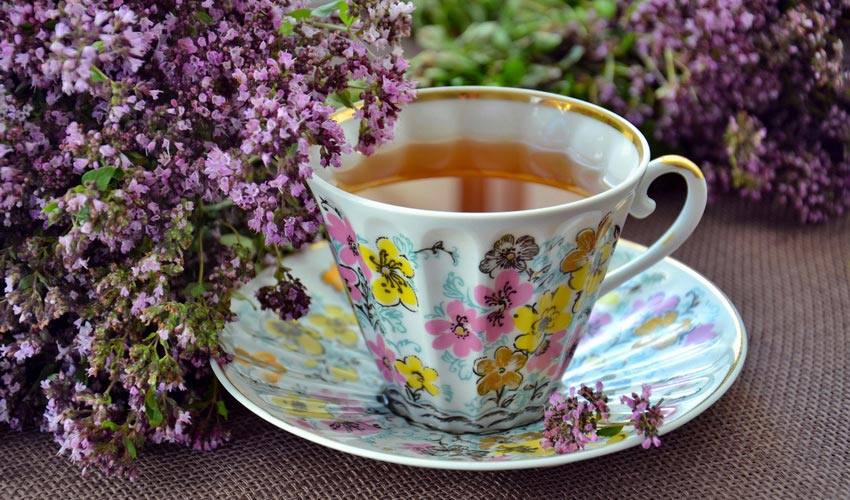
Worst Things to Add To Your Tea
Salt
Adding salt to tea is generally not recommended because it can alter the flavour of the tea in a negative way. Tea is meant to be enjoyed for its natural flavours and aromas, and adding salt can overpower or mask these delicate flavours. Additionally, salt can also disrupt the brewing process and potentially make the tea taste unappetising. Also, too many people already get too much sodium — 3,400 mg instead of less than 2,300 mg daily. It is best to enjoy tea as it is traditionally prepared, without adding salt.
Sweeteners & Artificial Sweeteners
Especially Americans are guilty of indulging in excessive amounts of sugar, with adult men consuming up to 19 teaspoons and women 15 teaspoons of added sugars daily. This overconsumption is linked to serious health issues like obesity, type 2 diabetes, and hypertension. It's time to cut back on the sweet stuff to protect ourselves. And while artificial sweeteners are a popular alternative, their effects on weight-loss are hotly debated. It's time to rethink our sugar intake for the sake of our health.
Essential Oils
Social media may recommend adding flavoured oils to your tea or food, but proceed with caution. Essential oils, extracted from plants, may sound natural and appealing, but not all are safe for ingestion. It is essential to confirm that you are using food-grade oils to avoid any harmful effects. Even with food-grade oils, it is crucial to remember that essential oils are highly concentrated and potent. While using a minimal amount of oils like peppermint or lavender can provide a pleasant experience, I generally discourage their use in hot tea. This is because essential oils are best mixed with foods or beverages that contain some fat, as they are fat-soluble. This means that they may not mix well with a water-based drink like tea. Take care when experimenting with essential oils in your food and beverages, and always prioritise safety over convenience.
Microplastics
Did you know that your innocent cup of tea could be exposing you to billions of harmful microplastic particles? A recent study revealed that some packaged tea bags break down in hot water, releasing over 11 billion particles into your drink. Research has shown that ingesting microplastics can lead to serious health issues, including an increased risk of heart attacks and strokes. With growing concerns about the health implications of microplastics in tea bags, it may be time to switch to loose tea leaves or opt for plastic-free tea bags to protect your well-being. Don't let hidden dangers ruin your tea time – make the switch today.
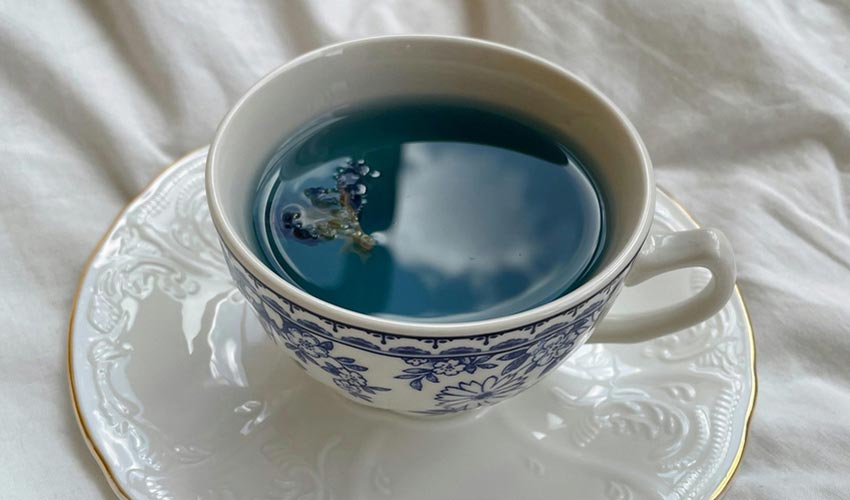
(Herbal) Teas Providing Anti-Cancer Properties
Green Tea
Green Tea is believed to have anti-cancer properties due to its high concentration of antioxidants, specifically a type called catechins. These antioxidants have been shown to help prevent cell damage and reduce inflammation, both of which can contribute to the development of cancer. Numerous studies have found that Green Tea consumption is associated with a reduced risk of various types of cancer, including breast, prostate, colorectal, and lung cancer. Some studies have also suggested that Green Tea may help slow the growth of cancer cells and prevent them from spreading. While more research is still needed to fully understand the mechanisms by which Green Tea may help prevent cancer, the existing scientific evidence does suggest that green tea can be a beneficial part of a cancer prevention strategy.
Matcha Tea
Matcha green tea is considered anti-cancer due to its high concentration of antioxidants, particularly catechins. Catechins are a type of polyphenol that has been shown to have cancer-fighting properties in laboratory studies. Several studies have found that green tea consumption, including Matcha, may help reduce the risk of certain types of cancer, such as breast, prostate, and colorectal cancer. The antioxidants in Matcha green tea are believed to help protect cells from damage that can lead to cancer development. While more research is needed to fully understand the cancer-fighting properties of Matcha green tea, there is scientific evidence to suggest that it may have a protective effect against certain types of cancer. However, it is important to note that Matcha green tea should not be considered a cure for cancer and should be consumed as part of a healthy diet and lifestyle. Matcha Tea is made from a specific type of green tea leaf called tencha, which is only grown in certain regions of Japan. The limited availability of this type of tea, combined with its labour-intensive production process, contributes to its higher price tag. Learn More About Ceremonial Matcha Green Tea Here.
White Tea
I think I mentioned this before in another article. White Tea is my favourite as it is often considered the purest and most delicate type of tea, with a subtle and nuanced flavour profile. It is also known for its high levels of antioxidants and other health benefits. Because of these qualities, White Tea is often seen as a premium product and therefore comes with a higher price tag. White Tea is believed to have cancer-fighting properties due to its high level of polyphenols, which are antioxidants that help protect the body from oxidative stress and inflammation. White Tea also contains catechins, a type of polyphenol that has been shown to inhibit the growth and spread of cancer cells. Several studies have suggested that white tea may have anti-cancer effects. For example, a study published in the journal Carcinogenesis found that White Tea extract reduced the size and number of skin tumours in mice exposed to a carcinogen. Another study published in the International Journal of Cancer found that White Tea extract inhibited the growth of lung cancer cells and induced cancer cell death. While these studies are promising, more research is needed to fully understand the anti-cancer effects of White Tea and to determine its efficacy in preventing and treating cancer in humans. It is always best to consult with a healthcare provider before making any significant changes to your diet or lifestyle for cancer prevention or treatment.
Black Tea
Black Tea contains polyphenols, specifically catechins and theaflavins, which have been shown through scientific research to have antioxidant and anti-cancer properties. These compounds have been found to inhibit the growth of cancer cells and reduce the risk of certain types of cancer. Several studies have suggested that regular consumption of Black Tea may help reduce the risk of developing certain types of cancer, including breast, ovarian, lung, and prostate cancer. However, more research is needed to fully understand the mechanisms behind these potential anti-cancer effects. Overall, the potential anti-cancer effects of Black Tea are supported by scientific research, but it is important to note that no single food or beverage can prevent or cure cancer. It is always recommended to maintain a healthy, balanced diet along with other lifestyle choices to reduce the risk of cancer.
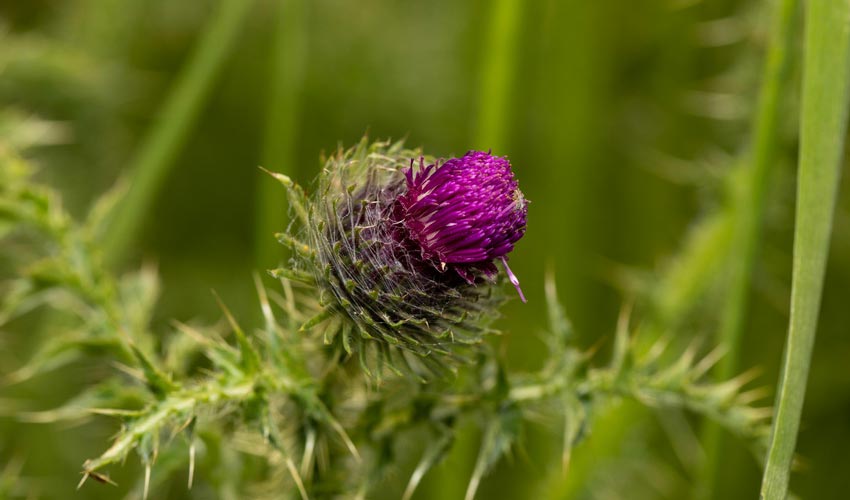
Milk Thistle Tea
Milk Thistle is believed to have anti-cancer properties due to its active ingredient silymarin, which is a powerful antioxidant and anti-inflammatory compound. Silymarin has been shown to help reduce inflammation, prevent DNA damage, inhibit the growth of cancer cells, and induce apoptosis (cell death) in cancer cells. Additionally, Milk Thistle has been found to protect the liver from damage caused by toxins, which can reduce the risk of developing liver cancer. While more research is needed to fully understand the extent of Milk Thistle's anti-cancer effects, preliminary studies have shown promising results. Learn More About Milk Thistle Here.
Dandelion Root Tea
Dandelion Root Tea has been studied for its potential anti-cancer effects due to its antioxidant and anti-inflammatory properties. The tea is believed to inhibit the growth of cancer cells, promote apoptosis (cell death) in cancer cells, and prevent the spread of cancer. There have been some studies that have shown promising results in vitro and in animal models, suggesting that Dandelion Root Tea may have anti-cancer effects. However, more research is needed to fully understand the mechanisms and potential benefits of Dandelion Root Tea in cancer prevention and treatment. It is important to note that while there is some evidence to suggest that Dandelion Root Tea may have anti-cancer effects, it is not a substitute for conventional cancer treatments. It is always important to consult with a healthcare professional before using any herbal remedies for cancer. Learn More About Dandelion Leaf & Root Here.
Liquorice Root Tea
Liquorice Tea is believed to have anti-cancer properties due to its high levels of antioxidants and other potentially beneficial compounds such as glycyrrhizin, flavonoids, and polyphenols. These antioxidants help to neutralize harmful free radicals in the body, which can prevent cellular damage and reduce the risk of cancer development. Some studies have suggested that Liquorice Root extract may have anti-cancer effects by inducing apoptosis (cell death) in cancer cells, inhibiting their growth, and preventing the spread of tumours. However, more research is needed to fully understand the potential anti-cancer properties of Liquorice Tea and to determine the optimal dosage and mode of administration. While there is some scientific evidence to support the anti-cancer properties of Liquorice Tea, it is always advisable to consult with a healthcare professional before using herbal remedies as a substitute for medical treatment. The effectiveness of Liquorice Tea in preventing or treating cancer may vary from person to person, and it should not be used as a sole treatment for cancer without medical supervision.
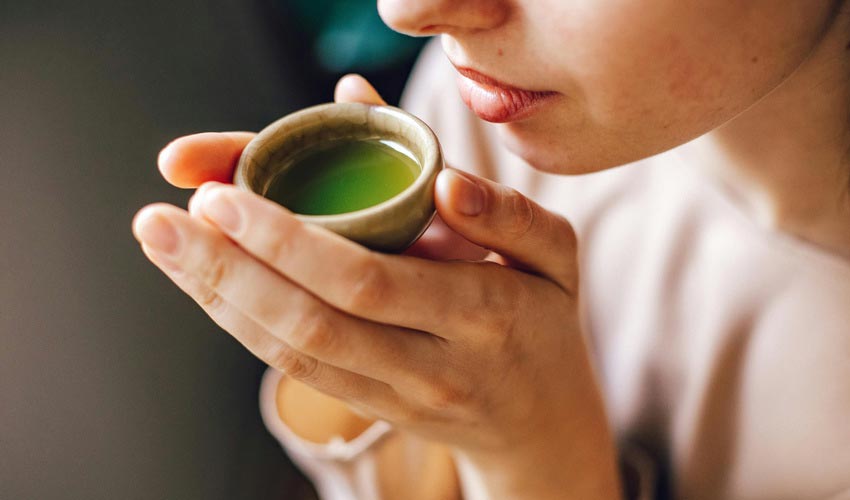
Echinacea Tea
Echinacea Tea has been suggested to have anti-cancer properties due to its high levels of antioxidants, which can help protect cells from damage and reduce inflammation in the body. Some studies have shown that Echinacea may have the potential to inhibit the growth of cancer cells and stimulate the immune system to better attack and eliminate cancerous cells. However, it is important to note that more research is needed to fully understand the potential anti-cancer effects of Echinacea Tea. While some studies have shown promising results, more research is needed to confirm these findings and determine the specific mechanisms by which Echinacea may help prevent or treat cancer. Overall, while Echinacea Tea may have some potential anti-cancer benefits, it is not a substitute for traditional cancer treatments and should be used as part of a comprehensive approach to cancer prevention and treatment. Consult with a healthcare provider before using Echinacea or any other herbal remedy for cancer prevention or treatment.
Ginger Tea
Ginger Tea is believed to have anti-cancer properties due to its high content of gingerol, a compound with powerful antioxidant and anti-inflammatory effects. These properties may help protect cells from damage and reduce the growth of cancer cells. Several studies have investigated the potential anti-cancer effects of Ginger and gingerol. A 2015 review of 60 studies found that Ginger and its components showed promise in preventing and treating various types of cancer, including ovarian, breast, colon, pancreatic, and prostate cancers. However, more research is needed to fully understand the mechanisms of ginger's anti-cancer effects and its potential as a complementary treatment for cancer. While Ginger Tea may have some anti-cancer properties, it is important to note that it should not be used as a replacement for conventional cancer treatments. It is always recommended to consult with a healthcare professional before using ginger tea or any other natural remedy for cancer prevention or treatment. Learn More About Pure Ginger Powder Here.
Turmeric
Turmeric Tea is often promoted as being anti-cancer due to the presence of curcumin, a compound found in Turmeric that has been shown to have anti-inflammatory and antioxidant properties. Curcumin has been studied for its potential anti-cancer effects and has been shown to inhibit the growth of cancer cells and prevent the development of tumours in animal studies. Additionally, curcumin has also been shown to enhance the effectiveness of chemotherapy drugs and reduce the side effects of treatment. While these findings are promising, it is important to note that more research is needed to fully understand the potential anti-cancer benefits of curcumin and Turmeric Tea. It is recommended to consult with a healthcare provider before using turmeric tea as a treatment for cancer, as it should not be used as a substitute for conventional cancer treatments. Learn More About Pure Turmeric Powder Here.
Lemongrass Tea
Some studies suggest that lemongrass Tea may have antioxidant properties that could potentially help prevent cancer. Lemongrass contains compounds like citral, which have been shown to have anticancer effects in some laboratory studies. However, more research is needed to determine the extent of these potential benefits and whether Lemongrass Tea can truly help prevent or treat cancer. It should not be used as a substitute for medical treatment.
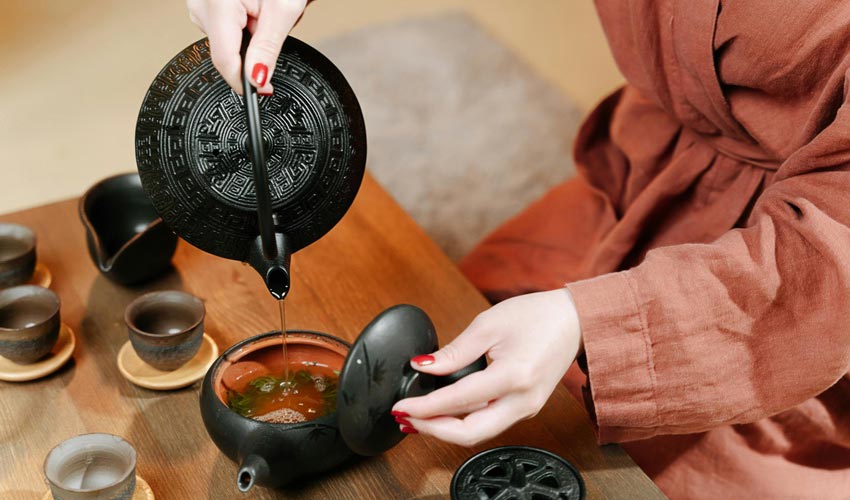
Butterfly Pea Tea (Blue Tea)
Butterfly Pea Tea is believed to have anti-cancer properties due to its high antioxidant content, specifically anthocyanins. These compounds have been shown to help protect cells from damage and reduce inflammation, which are both important factors in cancer prevention. While there is some evidence to suggest that Butterfly Pea Tea may have anti-cancer benefits, more research is needed to confirm these findings. So far, most of the studies on the topic have been conducted in lab settings or on animals, and more research is needed to determine the effects in humans. Therefore, while Butterfly Pea Tea may have potential anti-cancer properties, it is not currently backed by robust scientific evidence. It is important to consult with a healthcare professional before relying on butterfly pea tea as a treatment or preventive measure for cancer.
Soursop Tea
I’m drinking a cup of Soursop Tea daily as I read some incredible stories about it and even spoke with people claiming they were cured by it! Soursop tea is often touted as having anti-cancer properties. Some studies have shown that compounds found in Soursop, such as acetogenins, may have anti-cancer properties in laboratory settings. However, more research is needed to determine the effectiveness of Soursop Tea as a treatment for cancer. It is important to note that Soursop Tea should not be used as a replacement for conventional cancer treatments, and anyone with cancer should consult with their healthcare provider before trying any alternative therapies. Ultimately, more research is needed to determine the potential anti-cancer effects of Soursop Tea. Learn More About Soursop Leaves Here.
“If you are cold, tea will warm you;
if you are too heated, it will cool you;
If you are depressed, it will cheer you;
If you are excited, it will calm you.” - William Ewart Gladstone
References
- EXPRESS - Doctor shares 'blue-purple' tea contains 'cancer-fighting antioxidants' among 'benefits', Jan 3 2023.
- National Cancer Institute - Curcumin (Curcuma, Turmeric) and Cancer (PDQ®)–Health Professional Version,
- ScienceDirect - Cancer preventive properties of ginger: A brief review, May 2007
- News Medical Life Sciences - Exploring the anti-cancer potential of dark tea, Sep 11 2023.
- Lawless J. A Bryn Mawr Professor Has Brewed Up a Storm by Offering Britain Advice on Making Tea. WHYY. January 25, 2024.
- Be Sugar Smart: Limiting Added Sugars Can Improve Health. Centers for Disease Control and Prevention. March 28, 2023.
- bdelhalim A. The Effect of Mentha piperita L. on the Mental Health Issues of University Students: A Pilot Study. Journal of Pharmacy & Pharmacology. 2021.
- Wang J et al. Citrus Fruit Intake and Lung Cancer Risk: A Meta-Analysis of Observational Studies. Pharmacological Research. April 2021.
- Zang-Schwartz E. Is Your Tea Bag Made With Plastic? Center for Environmental Health. September 15, 2021.
- Aregawi L et al. The Effect of Ginger Supplementation on the Improvement of Dyspeptic Symptoms in Patients With Functional Dyspepsia. Cureus. September 2023.
- https://www.cancerresearchuk.org/about-cancer/treatment/complementary-alternative-therapies/individual-therapies/green-tea
- ScienceDaily - Cancer-Preventive Potential Of White Tea, April 13 2000.






















